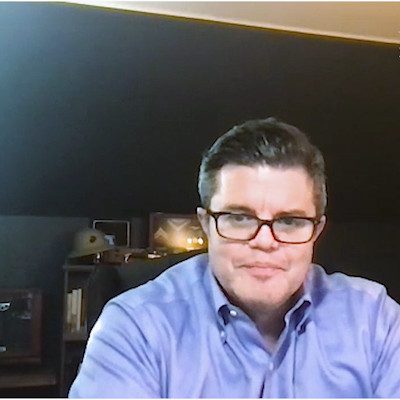January 27, 2022 -- Scientific innovation is happening at an ultrasonic rate these days, but what does this mean for cancer patients and their treatment options? This was the topic of "Outsmarting Cancer: Next Generation Therapies," a session at Biotech Showcase 2022. Kevin DeGeeter, managing director and senior analyst, biotechnology and diagnostics, at Oppenheimer, moderated the robust panel discussion and shared his insights with ScienceBoard as part of Biotech Finance Month 2022.

The panelists were terrific, providing a broad range of insight on targeted oncology, immuno-oncology, and cell therapy. There was a consensus among panelists that 2022 will include some of the most important clinical data readout in the past five years, with updates on T-cell immunoreceptor with immunoglobulin and immunoreceptor with tyrosine-based inhibitory motif domains (TIGIT) and other immuno-oncology compounds.
The panelists from In8Bio, Nkarta, Cyclacel, I-Mab, and AnHeart each highlighted company-specific milestones for 2022. Against the backdrop of public equity and market uncertainty, the discussion focused on how companies can stand out with investors.
A common thread of the discussion was a need to define the unmet patient need clearly to investors. Even in crowded cancer indications, there are important unmet patient needs. Define those correctly, and investors are likely to notice. Furthermore, the panelists were generally positive on leadership at the U.S. Food and Drug and continued opportunities for accelerated approval of oncology therapies.
And, lastly, we all miss in-person medical meetings. So maybe the American Society of Clinical Oncology 2022 will be in person?
2. Tell us about Oppenheimer and the unique role your company plays in the biotech or healthcare industry.We are a bank focused on development-stage biotech. We are committed to sorting through products and concepts to find companies doing important work that may not align with "flavor-of-the-month" investors. The filter we provide has only become more important as the volume of innovative biotech companies has mushroomed over the past five years.
3. What innovations do you think hold the most potential for the future of biotech, or that you are excited to see unfold in the near future?Sequencing is hardly new, but clinical access to timely genotypic data in regular clinical practice remains limited to a sliver of the population. We believe barriers limiting broad access to sequencing data -- both cost and information technology infrastructure to distribute information to busy clinicians -- are rapidly falling away.
Moving forward, expanding access to genetic-based therapies for populations beyond oncology and pediatric neurology may reset the bar for how companies view the development of therapies for genetic subtypes of prevalent conditions from diabetes to infectious diseases.
4. What is something every entrepreneur should consider when starting their company?Every organization sets near-term, intermediate, and long-term priorities. Investing in your corporate culture should include specific and actionable priorities filling each of those time frames. Active exchange (and the occasional collision) of ideas is the fuel for innovation. Fixing culture later will be gut-wrenching. Get it right from day one.
5. What's next for Oppenheimer in the biotech and healthcare space? And for you?We believe the intersection of new data science tools and traditional drug discovery techniques will likely have a meaningful impact on the productivity and structure of discovery research. Machine learning and other computational tools are already extending the power of analytical modalities biotech has traditionally relied on.
Perhaps harder to quantify is the impact of an influx of exceptionally talented people from technology disciplines into biotech research. Has the marriage of biotech and tech finally arrived, or is this another uncomfortable courtship?
Kevin DeGeeter is the managing director and senior analyst, covering biotechnology and diagnostics at Oppenheimer. Prior to rejoining Oppenheimer, DeGeeter was senior analyst at Ladenburg Thalmann, covering biotechnology as well as oncology, infectious diseases, cell therapy, and molecular diagnostics. He has 20 years of buy-side and sell-side research experience, including senior analyst positions with J.P. Morgan, Paine Webber, Natexis Bleichroeder, and Manning & Napier. DeGeeter was previously at Oppenheimer from 2007-2009 as a senior analyst covering biotechnology. He received a Bachelor of Arts from Colgate University.
Do you have a unique perspective on your research related to cancer research or biotech finance? Contact the editor today to learn more.
Copyright © 2022 scienceboard.net









